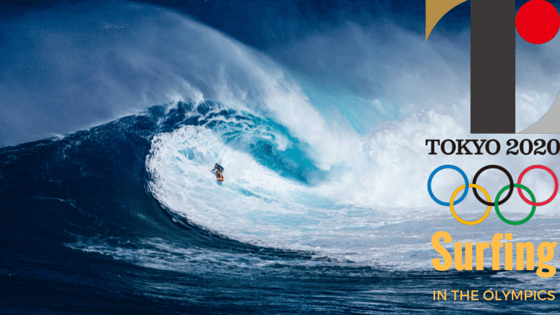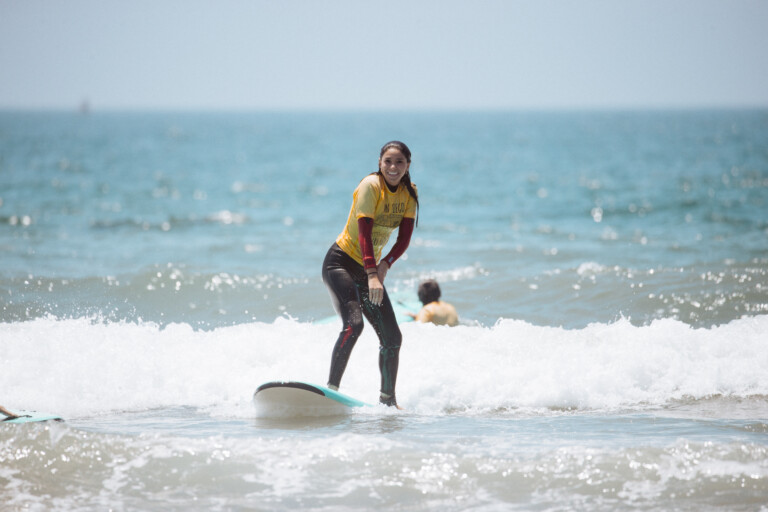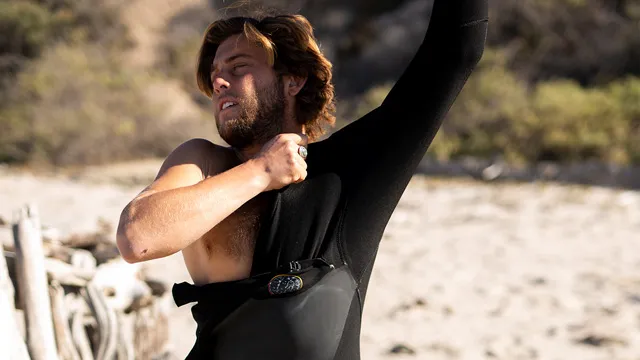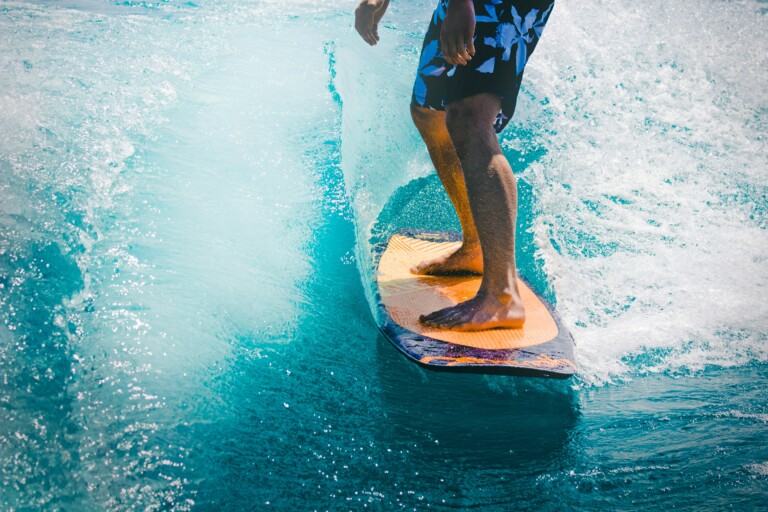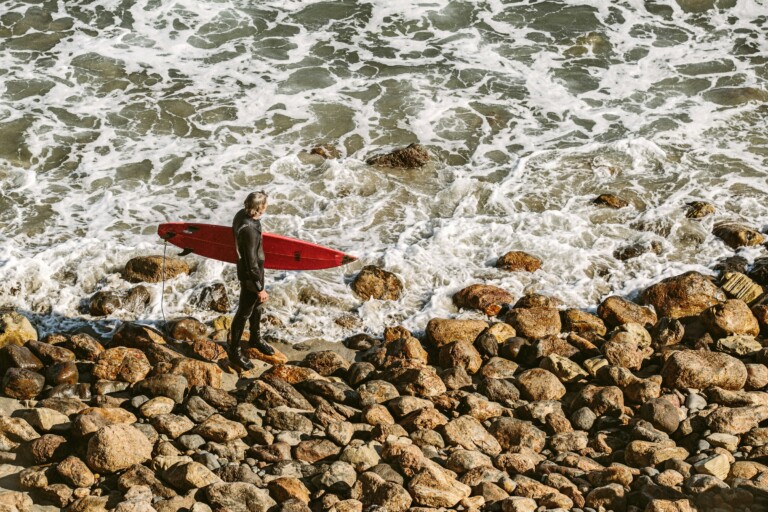For many years, there’s been a debate over whether Surfing should be an Olympic sport. One of the primary advocates for adding Surfing to the roster of the Summer Olympic Games, The International Surfing Association (ISA) is based right here in San Diego, so it’s a conversation we’re familiar with. No matter which side of the Olympic Surfing debate you’re on, one thing is for sure; the International Olympic Committee is very close to debuting Surfing and Skateboarding as well as Karate, Climbing, and Softball/Baseball at the 2020 Olympic games in Tokyo. What does this mean for the sport of Surfing? Well, that depends on who you ask.
Those who are favor adding Surfing as an Olympic sport say that the exposure of the sport and its athletes will mean good things for the sport as a whole. The more audiences are interested in the sport, the easier it is for athletes to make a living from scholarships and sponsorships. Currently, there is surf competition on a global scale, but the built-in excitement and pride that surrounds the Olympics attracts exponentially more attention and could introduce new audiences to the sport.
The effects of increased visibility don’t stop there. With more support and attention, athletes can push their limits and advance the sport. Particularly important to the sport of Surfing is practice and access. Because the sport is dependent on the conditions of the ocean, having access to the right breaks, at the right time and ample time to learn and experiment is essential to advancing skills. From the outside it may look like surfers get paid to travel the world and bronze beachside, but in reality, it can be a grueling training and travel schedule that rivals any mainstream professional athlete. Inclusion in the Olympics would not only validate the effort these athletes put in, but also allow more people to enjoy the fruit of their efforts.
Another side effect of adding surfing to the Olympics includes better exposure for the oceans as a whole. Once you experience the wonder, the ocean has to offer, aside from a provider of seafood, it’s tough not to develop an interest in the oceans wellbeing. Because of the intensity of water pressure, we know more about space than we do about the oceans here on our planet. There’s more water on our earth than land, so it’s not surprising that the care and conservation of our oceans affects everyone. Developing a global appetite for surfing means creating a robust platform for highlighting the importance of our oceans.
A new and better sport for the world to enjoy, advanced awareness and knowledge about the care of our oceans, what’s not to love about Surfing and an Olympic sport? As with any decision affecting a sizable group of people, there are a few objections.
From the position of the Olympic Committee, adding surfing to the Olympics poses a problem. It puts a restriction on where the Summer Games can be held. Adding “surf-able coastline” into the requirements for a Summer Games host city limits who can hold the games, and given the socio-economic impact hosting the Olympics can have on a city, it’s a decision not to be taken lightly. This detractor is one that Kelly Slater and others have been working on for years, developing more and more natural “stationary waves” or wave pools, in the hopes of opening surfing up to a wider audience.
However, for the short foreseeable future, realistic wave pools are not available to most landlocked communities. So does adding surfing to the Olympics skew the medal count, putting countries without coastline at a disadvantage? Proponents may cite the Jamaican bobsled team and other warm climate countries that have experienced success in the Winter Olympic Games, while critics say it’s an exclusionary move. Not only does a country have to have a coastline, but also access to waves that can compete with top tier surf destinations like the Gold Coast of Australia, Hawaii, and California. It’s tough to determine a globally level playing field when it comes to surfing.
And lastly, those for keeping surfing out of the Olympic games say it’s just not right for the sport. For many who surf, it is an escape, a connection to the ocean, a spiritual practice that’s more than just sport, and not something to be judged. For this segment of believers, they fear what global exposure and global commercial money will do to the sport. For many years surfing was a part of the counterculture. Reserved for the hearty few who didn’t fear the ocean and harnessed its power. Even those currently on the surfing world tour are a select few, known for their inclusion in the surf community as much as their skill. The top surfers are already competing on a global scale, who needs the added scrutiny of the International Olympic Committee and the world?
These are the questions that the IOC have been debating for years, and it seems the tide may be turning in an Olympic direction for the sport of Surfing. We’re becoming a more educated, more inclusive culture and that has led to embracing sports that used to be considered part of the fringes of society. Surprisingly, there are very few studies on how many people around the world surf or consider themselves a “surfer” but ask a surfing local about how many people surf their regular spot, and they’ll all confirm, numbers have risen over the years. So what do you think? Will surfing benefit from the exposure and competition on a global scale? Or stay on the fringes, content to enjoy the coastline and the surfing without the eyes of the world? For us, we shall wait and see.






